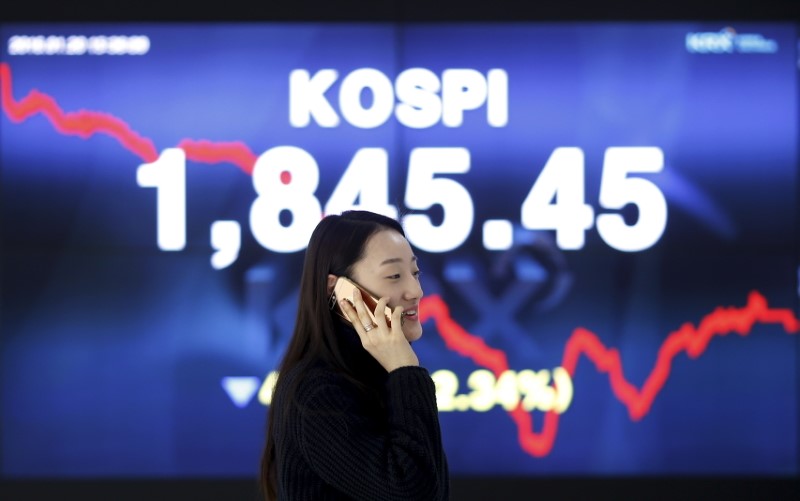By Dahee Kim and Cynthia Kim
SEOUL (Reuters) - For years, investors in South Korea have become accustomed to belligerence and regular missile tests from the country's hostile northern neighbor, but now there's a new factor in their regional risk assessments - U.S. President Donald Trump.
Jolts to financial markets from North Korea's military provocations are frequent but were until recently contained by an implicit expectation that global diplomatic efforts could limit Pyongyang's aggression.
Now, however, there is as much market anxiety about Trump's unrestrained Tweets and a hawkish White House response as there is about North Korean agitations.
Since Trump's election in November, price reactions to North Korean long-range missile tests in credit and currency derivatives, typically used by traders to hedge geopolitical risk, have been distinctly sharper.
"Trump has moved markets and China more within months than (Barack) Obama in eight years," said Cliff Tan, East Asian head of global markets research at Bank of Tokyo-Mitsubishi UFJ.
The reclusive North Korea has conducted five nuclear tests and a series of missile launches in defiance of U.N. resolutions for decades as it is still at war with South Korea after the 1950-53 conflict ended in a truce, not a peace treaty.
Before Trump's election, missile tests came with such regularity that markets learned to shrug them off.
This year, the options market shows the cost of insuring investments against North Korean-related risks has surged, with 3-month protection against a drop in the won, for example, reaching a high of 231 basis points in mid-April, double the levels six months earlier.
This spike came as the U.S. diverted a warship towards the Korean Peninsula and showed off its strike capability in Syria, which it conducted just as Trump met with his Chinese counterpart, Xi Jinping.
The cost of owning the option to sell the won in April was the highest it had been since August 2015, when the two Koreas were in a tense military standoff.
"It's the Trump-on-stage reaction," a currency trader in Seoul said. "Trump's hard line approach, and his past crazy comments on everything from the Mexico-wall to Syria policies have created a whole new range of uncertainties for traders investing here."
PRICING IN TRUMP
Despite heightened geopolitical tensions, South Korea's main asset markets have performed well this year with the won
The cost of hedging, however, is where investors have felt the pain: options to sell Korean won for dollars were perversely more expensive after Trump's November presidential victory than when North Korea conducted its fifth nuclear test two months earlier.
The premium on three-month options to sell the won had hovered around 100 basis points for years before Trump took office, and barely budged even when then U.S. President Obama issued a stern warning to Pyongyang following a missile test in April 2016.
"Financial markets have become more sensitive to the U.S. stance with more hard line policies under Trump, compared to when the Democrats were in power," Shim Hyun-soo, a senior fund manager with the quantitative management team of Kyobo AXA Investment Managers, said.
In other derivatives markets, the spread on South Korea's 5-year credit default swap
Market pricing of expected volatility in the won
"During the Obama administration, the markets didn't care much about the North. Everyone knew the Kim Jong Un regime wouldn’t do anything stupid for real as it could really be the beginning of the end," said Jeon Seung-ji, a Seoul-based currency analyst at Samsung (KS:005930) Futures.
"North Korean risks are no longer a 'half-day-slip', mainly because markets are not sure how Washington would handle them," Jeon said.
Graphic: Asia stocks valuation - http://tmsnrt.rs/2sP7A2T

Graphic: Korean markets vs North Korea missiles - http://reut.rs/2sSVZA4